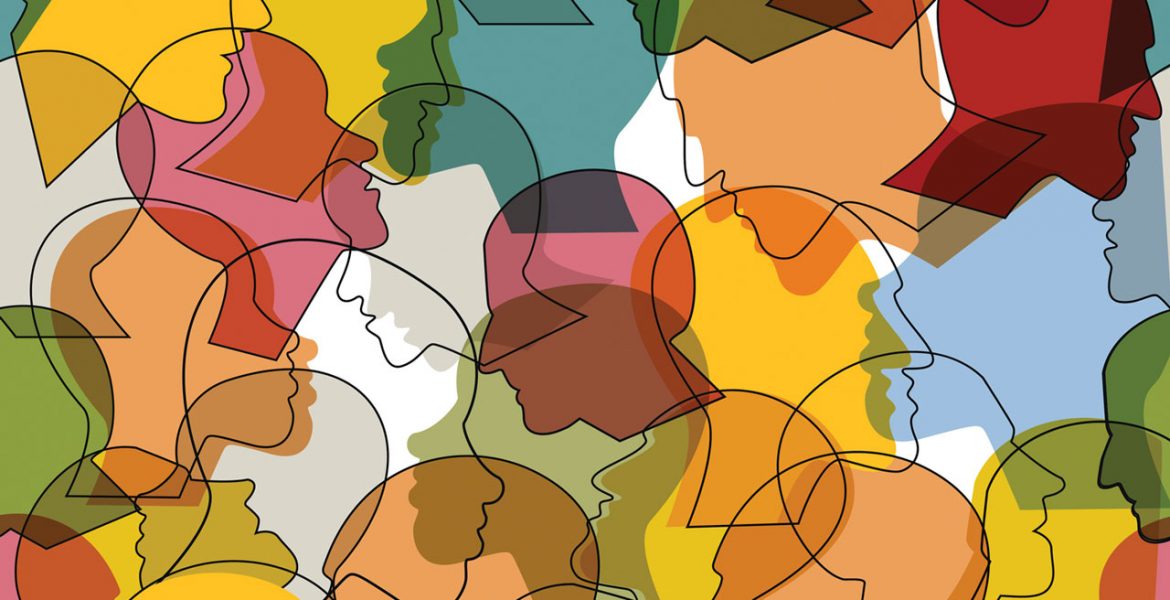You’d pretty much need to be living under a corporate rock lately to not be touched by some discussion about diversity today. No matter what you think of the political debate or posts by the Tweeter-in-Chief, you can’t escape the conversation. Today, companies devote enormous energy and bandwidth to internal summits, initiatives and new C-suiters – all devoted to making the workplace more welcoming to women, people of color, and generally anyone who doesn’t fall under the category of white, straight, male and Christian.
All of this is good for the country, good for the world, and good for humanity. But it’s also all potentially a step backwards, unless the concepts of diversity and multiculturalism are reframed for 2019.
While well-intentioned, diversity and multiculturalism are borne of the centuries-old perspective held by people in power (in the U.S., that means the demographic majority: typically, white, straight, male and Christian). They are concepts meant to recognize the historical inequality of opportunity felt by the less-populous “minorities,” by attempting to share that power.
But the idea of divvying up power based on demographic differences only fuels the country’s divisiveness by viewing society as a finite, zero-sum game. Sharing power with “others” means giving up–sacrifice–for people who have gotten quite used to it (see white privilege). And that threatens the very people who have never had to question their station in life.
That’s where Inclusion and Omniculturalism come in
Where diversity and multiculturalism see a culture divided by difference, inclusion and omniculturalism assume that difference is table stakes. That it is a normal part of individual identity and essential to growing a healthy business. Difference is what makes each person special – the product of a unique set of intersections – what Millennials like to call a “unicorn.”
And those differences go beyond the obvious. Superficial distinctions like race, ethnicity, gender and sexual identity are just a starting point. Inclusion and omniculturalism take in account factors like ability, generation, body type, religion, diet, class, sexual identity and more as aspirational markers. This shuns societal “norms” of how people should look, dress or believe in favor of self-expression, non-conformity and, well, humanity.
Paradoxically, when we accept that every individual is different, we all share that in common. We focus more on human truths – family, love, and the everyday struggles, joys, dreams and fears that are universally shared.
At their heart, inclusion and omniculturalism are about creating radical empathy.
Today, some of the most interesting, acclaimed and exciting content features people of difference exhibiting very “normal” lives, from very specific points of view. Look at Aidy Bryant’s plus-sized heroine of Shrill, Ramy Youssef’s 20-something eponymous character navigating the challenges of dating, family and religion in Ramy (both on Hulu), Ryan O’Connell’s worldview as a young gay man with cerebral palsy on Special (Netflix), Aisha Dee’s experience as a young, black queer woman dating a proud Muslim lesbian on The Bold Type (Freeform), or Sandra Oh’s obsessed MI6 agent on Killing Eve (BBC America). They wear their difference just as naturally as they do their own skin – it’s nonchalant and normalized, not the first thing they wake up thinking about every day.
And isn’t that how we all should live? We can if we take the first step. Let’s stop using dated terms that focus on difference and reframe our thinking towards our common future. Where we can all be ourselves, together.


Refreshing!
thank you bill!
Linda, this is spot on and something I’ve been struggling with over the past few years – we can’t move forward, to your point, constantly referencing the same outdated constructs. Thank you for this! Also love the Killing Eve shout-out, one of my favorite shows 🙂
just saw this. thanks sue ann! please follow me @lindaong100 and keep the convo going!
linda
Spot on! Thank you for this, Linda. Will be forwarding this along.
thanks so much annette, hope you’re well!
xlinda
ha ha just saw this. thanks bill! follow me @lindaong100 to keep the convo going!
linda